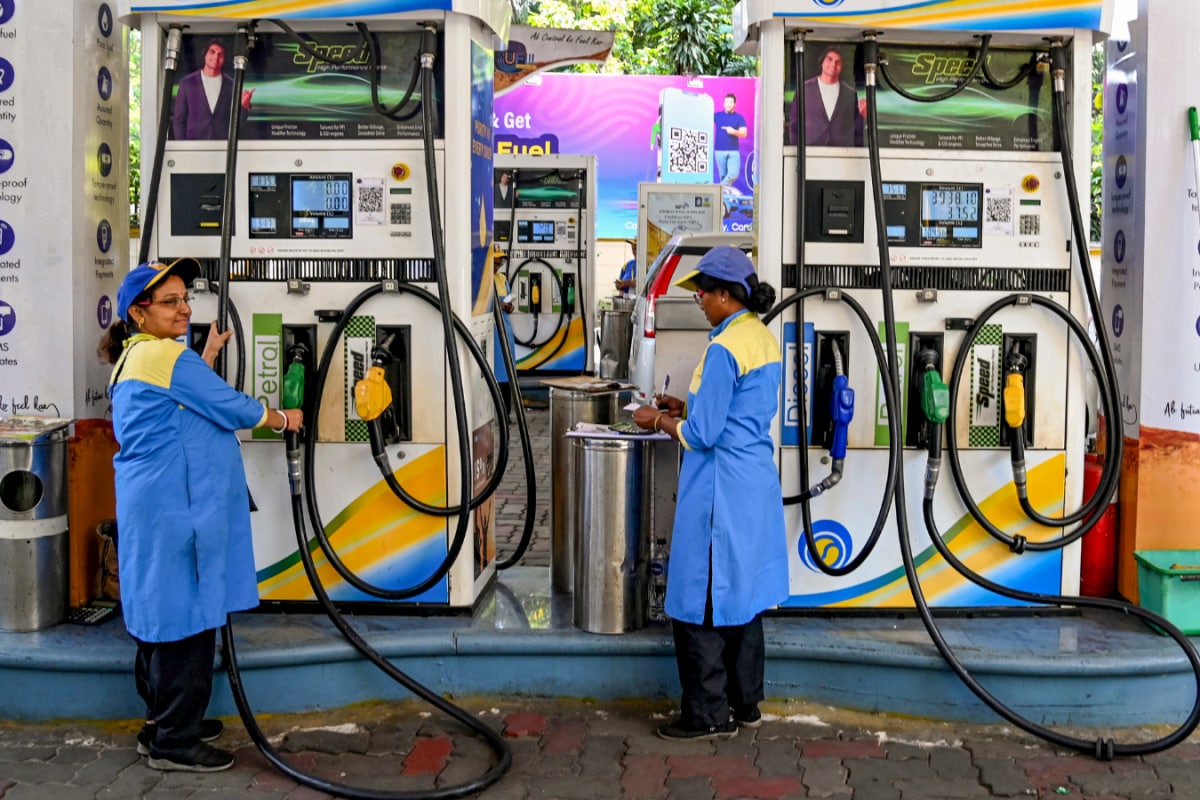As of July 17, 2025, fuel prices across Indian cities remain dynamic, reflecting the daily revisions implemented since June 2017. These revisions are influenced by a combination of international crude oil prices, currency exchange rates, and taxes.
Current Petrol Prices in Major Cities:
- New Delhi: ₹94.77 per litre
- Mumbai: ₹103.50 per litre
- Kolkata: ₹105.41 per litre
- Chennai: ₹100.90 per litre
- Bangalore: ₹102.92 per litre
Current Diesel Prices in Major Cities:
- New Delhi: ₹87.62 per litre
- Mumbai: ₹92.15 per litre
- Kolkata: ₹90.76 per litre
- Chennai: ₹92.43 per litre
- Bangalore: ₹85.93 per litre
It's important to note the variation in prices across states. For example, Andhra Pradesh has the highest petrol price at ₹109.50 per liter, while Andaman and Nicobar Islands have the lowest at ₹82.46 per liter. Similarly, Andhra Pradesh has the highest diesel price at ₹98.22 per litre, while Andaman & Nicobar has the lowest at ₹78.05 per litre. These differences are primarily due to variations in state taxes.
Factors Influencing Fuel Prices in India:
Several factors contribute to the daily fluctuations in petrol and diesel prices in India:
- Crude Oil Prices: The international price of crude oil is a primary driver. Global events, political tensions (such as the Russia-Ukraine war or the Iran-Israel conflict), and supply-demand dynamics all impact crude oil prices, which directly affect India's import costs.
- Rupee-Dollar Exchange Rate: India imports a significant portion of its crude oil in dollars. A weaker rupee means it costs more to purchase crude oil, leading to higher fuel prices.
- Taxes: Both the central and state governments levy significant taxes on petrol and diesel, including excise duty and Value Added Tax (VAT). Changes in these tax rates directly impact the final price consumers pay.
- Refining Costs: The cost of refining crude oil into petrol and diesel also contributes to the final price.
- Transportation Costs: The expense of transporting fuel from refineries to retail outlets adds to the overall cost. Longer distances from depots can result in higher prices.
- Dealer Commission: Oil marketing companies (OMCs) pay commissions to fuel dealers, which is factored into the retail price.
- Demand and Supply: Increased demand for fuel can drive prices up, especially when supply is limited.
- Government Regulations: The Ministry of Petroleum and Natural Gas regulates fuel prices, allowing OMCs to adjust prices daily based on market conditions.
Impact of Fuel Prices on the Indian Economy:
High fuel prices can have several adverse effects on the Indian economy:
- Increased Import Bill: Higher crude oil prices increase India's import bill, putting pressure on the country's finances.
- Inflation: Rising transportation costs can lead to higher prices for goods and services, contributing to inflation.
- Economic Slowdown: High fuel prices can negatively impact economic activity and slow down economic growth.
Dynamic Pricing Mechanism:
The dynamic fuel pricing method, implemented in June 2017, allows OMCs to revise petrol and diesel prices daily at 6 AM. This system aims to reflect changes in international crude oil prices and exchange rates more accurately, promoting transparency and reducing speculative practices.

